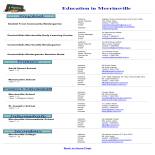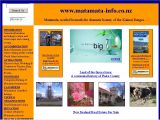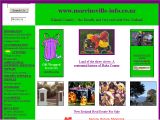If you're suffering from search fatigue, here are some ways to make your searching more decisive. We've focused on Google, which accounts for largest percentage of New Zealand searches, but most of these techniques will work with other search engines as well.
1 Give your fingers a rest
Instead of misspelling 'www' or trying to guess whether that URL has a .nz on the end, just type your favourite web brand (you know, 'facebook', 'youtube', 'TVNZ') into the search bar and chances are it will be the first link ... too easy. With a built-in spellchecker, you can even misspell the brand you're searching for (try 'guchi' and 'jagguar' to see what you get). Simple, and a great timesaver if spelling is not your strong point.
2 Change the search term order
When searching for something with a descriptive element, like 'lovely beaches in Bali', try a bit of backwards grammar and rewrite it as 'Bali beaches lovely'. Put the nouns before the adjectives, with the most important words first. The relative ranking of links will change to reflect this ordering and open up alternative links for you to explore.
3 "Don’t mess with my query"
If you're determined to find something containing a particular phrase, use quotation marks to find those exact words in that order. Be aware though that searching for example for "Jobs in Dubai" won’t match you with "Massive job losses in Dubai", something that might be handy to know about as well.
4 Limit your search
If you have a fairly good idea where the information you're looking for is stored, you can restrict your search to a single website or set of sites. Just add 'site:URL' to your query to pull off this trick. For instance, searching for 'rugby players site:warriors.co.nz' will restrict Google to pages on the warriors website and no other. But you don't have to be that specific - looking for 'champagne site:.fr' will restrict you to websites with a French domain name.
5 Operator please!
The symbols or 'operators' +, – and * do powerful things when dropped into a search query.
+ forces Google to include a term. Entering '+refund' into the search bar might help you get back the money for that glamorous holiday you now need to cancel because of the Global Financial Crisis.
– forces Google not to include a term. Adding ' –easter' will ensure you’ll not get deluged with chocolate ads when searching for recipes using eggs.
* is the ever-present wildcard operator. Use it to complete your quoted phrase searches, for example 'today I love *', or fill in the missing blanks in your memory, as in 'james bond sean *'.
6 Too clever!
Two more operators, .. and ~, are really powerful.
Putting two numbers separated by .. finds results within the range of numbers: 'oil prices $55..$75' or 'cheap gifts $5..$10' could provide really useful answers to some of life's challenges.
The true ninja of search operators, ~, goes one step further and matches synonyms and words with different endings. Search for '~exercise' and it will match words like fitness, aerobic and bodybuilding. Try '~tunnel' and you’ll also get bridges, buses and, interestingly, the official website for NZ train and rail journeys.
7 Ask and you shall receive ...
Google also has special feature keywords that help to guide you more specifically to what you're asking for. For example, searching for 'weather palmerston north' will give you exactly that, with cute icons to boot - 'cinema' shows, for me, Auckland cinemas but provides a map so that you can change the location if necessary and will then show you movies and cinemas in your area; 'time berlin' will make sure you don't wake up your old friend when you call - and 'define search' will give you a dictionary definition of the word 'search'.
You can even type in '100 NZD in USD' and '10 pounds in kg' to do currency and unit conversions, and 'nz map' to get a link to a zoomable map of New Zealand. Take a look at the full list  .
.
8 Too much to remember?
Combining all the suggestions above is not for everyone, so most search engines have an 'Advanced Search' link that allows you to do much of what we've provided above in a more user-friendly way.










